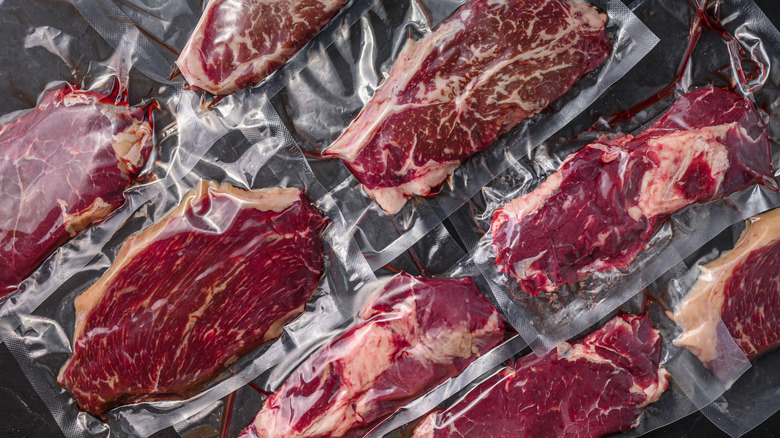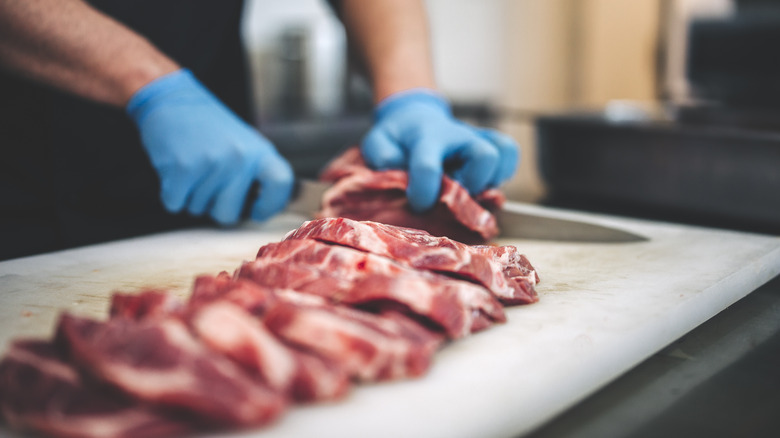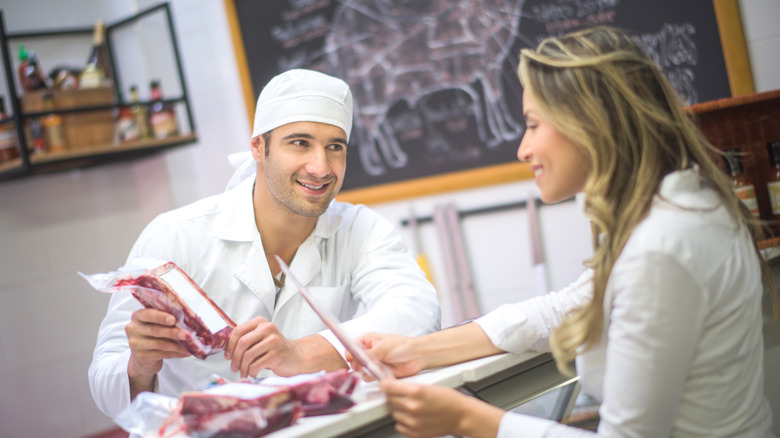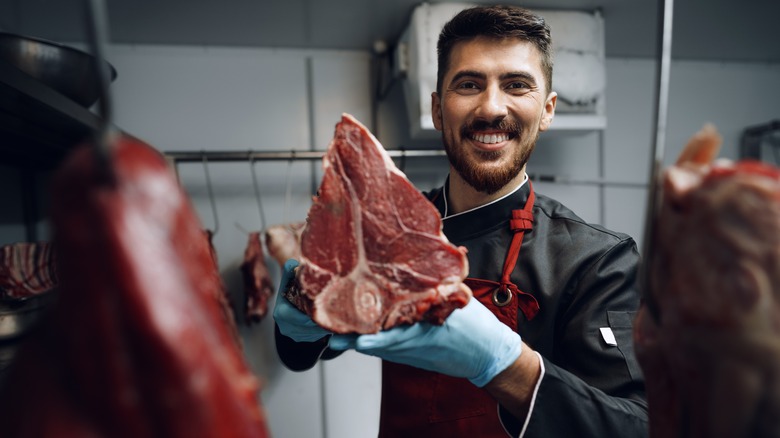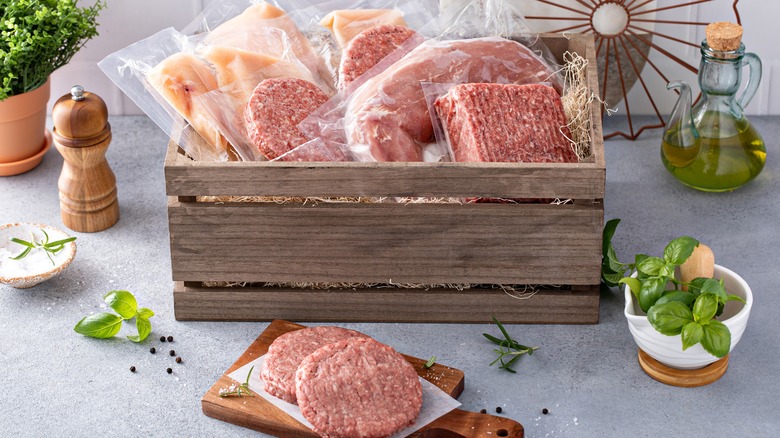The Factors To Consider Before Buying Meat Online
Between maintaining a social life and staying sane at work, buying groceries is sometimes far down on the list of priorities. To make things easier, some of us might have a recurring grocery order or an order of veggies from the local co-op that arrives every week. For others, it means a monthly shipment of high-quality meat arriving at their doorstep.
There are a few pros and cons when it comes to buying meat online, but perhaps the number one reason to buy meat online is convenience. There's no need to put on pants for a trip to the grocery store. You just press a few buttons, and then a large box of meat shows up a few days later. And what you're getting is usually of better quality and cheaper than what you get in the store. A premium online butcher eliminates the middleman and buys their meat directly from the supplier, which means restaurant-quality cuts at lower prices.
But for as many reasons as there are to order your meat online, there are just as many to not — illegal slaughterhouses, poor handling and shipping practices, and questions about provenance abound. However, the following are some things to consider when buying meat online so you're sure you're buying from a safe and reputable online butcher.
Where a butcher sources their meat affects the quality
When buying meat online, your main concern is probably quality. Will what you're getting be the same, or better, than what you can get at your local butcher or supermarket, or will it be a waste of money? Your butcher should be able to tell you how the meat was raised and slaughtered (or caught, in terms of seafood, which some online meat shops do offer).
Many buy directly from the farmers themselves to get the freshest meat possible at the highest meat grade. A high level of transparency is a good indicator of quality, and any information about meat quality should be directly stated on the butcher's website.
Selling high-quality meat means nothing if the butcher isn't skilled; it would be a shame to have USDA Prime meat butchered incorrectly. Butchery is a skill that requires experience, so be sure to look for that information, as well. How long have they been in business? What farms do they work with? A premium butcher should not only have premium cuts of meat but also the skills to match.
Read reviews, get opinions, and don't be afraid to ask questions
Buying meat online is just like buying any other product online — we look for reviews, scour their websites, and then decide on whether to buy. Many butchers will display certifications or awards on their website, usually awarded by industry or government associations. How do the pictures look on their website? Using a stock photo or their own photos might be an indicator of their reputability, as well.
Take a quick scroll through the company's social media feeds, too. Searching for reviews online will give you a good idea about quality, response times, or what to expect, in general, from an online butcher. Even some of your favorite YouTube chefs and food bloggers might have recommendations for sourcing meat online and may even have coupon codes for fans to take advantage of.
Finally, a good online butcher will be willing to assist you when it comes to selecting meat — every cut of steak you ever wanted. If their reputation is as good as they say it is, this information should either be posted directly on their website or given to you upon request. You should be able to depend on them for their knowledge and skills. The bottom line is that if anything seems sketchy or suspicious on the website or their social media posts, it's probably best to not waste your time and money.
Consider the overall value of what buying meat online gets you
When evaluating an online butcher, where they source their meat, the cuts they have, and the portion sizes should be taken into consideration. If their prices are slightly higher than the average supermarket, how much is the convenience of buying meat online worth to you? What about their skills and available cuts?
When you buy your meat from your local store, what you're getting are the cast-offs from the funnel. According to the USDA, restaurants are given first dibs on meat and usually get the best Prime cuts. Then the supermarkets can take their pick, and even the best meat departments don't get the Prime cuts.
An online butcher's supply chain is much shorter — no middlemen taking their cut, and some may even buy directly from farms that practice ethical farming with no hormones or antibiotics. These savings are passed on to you, the consumer. Due to this shorter supply chain, online butchers will have more choice of higher quality meats than your supermarket and tailor your order to you.
Take a deep dive into the shop's shipping and handling practices
Shipping is probably the most important issue or concern when it comes to buying meat online. How will the butcher ensure the product is properly packed and follows food safety rules to arrive at your door? Meat requires cold temperatures to be delivered safely to your door — anything over 40 degrees Fahrenheit, and there's a risk for bacteria and other harmful microorganisms growth. Most online butchers will post their meat preparation and shipping policies on their websites, where they outline how they get their products to you safely, but if you can't find it, ask them directly or seek out reviews.
Meat should be shipped frozen or cold, but it depends on the butcher and your preferences. Some online butchers ship their meat with dry ice as extra insurance against temperature fluctuations. And the best part about shipping meat is that it'll be a quick delivery. They should have plenty of options for a delivery slot that works for you, so your box of meat isn't left on the front porch until you get home from work.
